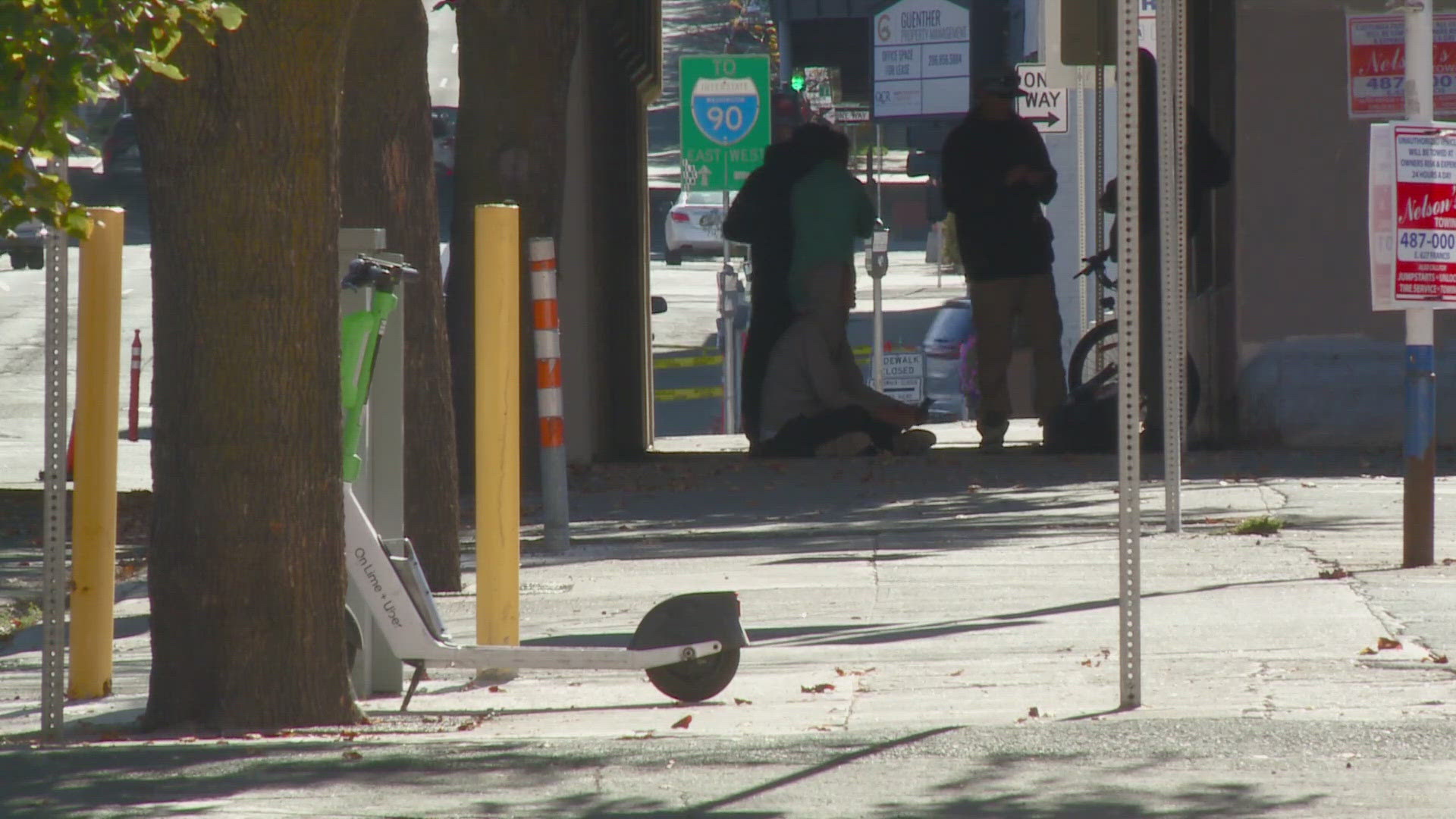SPOKANE, Wash. — Step up to the bar at Wave Sushi and you're sure to be greeted by delightful and deliciously decorated creations.
Owner Sarah Shore takes the same care to bring a feast for the eyes in every corner of her downtown restaurant. On Monday, she was artfully arranging leis and flowers into a Hawaiian-themed Christmas tree for another beautiful display inside the windows.
However, what happens outside is another matter.
"It's not necessarily crimes," Shore said. "I'm not being personally attacked, the business isn't being broken into every day, but it's what we have to look at every day when we come downtown."
Shore said trash, drugs and people sleeping in her window wells are having an impact on her business. It's driven her to call the police more and more since September. She says it's also driving more and more customers out of downtown.
"Oh absolutely," Shore said. "We're seeing slower months than we've ever seen here at the Wave. In all the sales data I have, past two years and previously. And it's scary."
The not-so-pretty picture is also painted by data from the one-month C.O.R.E. test pilot program; Spokane Police Chief Kevin Hall briefed city council members on more of the raw numbers Monday during a public safety committee meeting.
"We're on this hamster wheel with enforcement and with services," Hall said.
During the 30-day program, extra officers were placed downtown in crime hot spots, like 2nd and Division. These C.O.R.E. focus areas account for only half a percent of Spokane's total footprint, Hall said.
"However it represents 38 percent of reported drug offenses and 25% of trespassing offenses," he told council members.
About 70% of all Spokane's drug offenses happen in the downtown precinct, which itself represents only 2% of Spokane's geographic area. Hall said during the 30 days of the program, officers made 190 contacts. Of those, he noted, only 13 people accepted treatment.
"So not the success we wanted to see in service referrals but we're still attempting, as we've said in the past, with a very treatment-resistant population," he added.
Council members asked about how often service referrals were made. Council President Betsy Wilkerson questioned whether officers could fill out some sort of "form" to track whether the offer was made or refused during contacts, though she acknowledged that may be difficult and situation-dependent.
Hall said successful treatment referrals often count on catching someone during a very "narrow" window or only after making several contacts with the same person; he recalled an account from one agency that reported people accepting help only after 60 or more contacts.
Shore says police have responded quickly to every call she's made, though she feels frustrated they don't seem able to do anything except ask some people to move along.
"I wish as a city we had some sort of plan [for] what to do with these people," Shore said.
"They need somewhere that's not the ER and is not jail. We need a third place and that's the place we're having conversations about," Hall said.
While those talks continue, Shore says she and other business owners are just waiting to see real change. She says though other businesses are leaving downtown entirely or closing for good, she's not in the spot yet to leave.
Though if she had the decision to make again, she'd choose differently.
“If I was given the choice [of] trying to open a new business, I can tell you it wouldn't be downtown," she said. "At this point, right this moment, there's no end in sight. Because nothing has changed. Something's got to give before it gets better."
Chief Hall says SPD has rearranged some things to keep more officers downtown into the new year.

